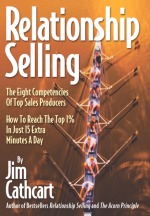Reproduced from the South Florida Sun-Sentinel newspaper
Tuesday, August 31, 2010
 |
| Lamborghini Diablo |
In the recession, mounting concern over stock portfolios and feelings of guilt about extravagant buys caused some wealthy consumers to rein in conspicuous sending.
It didn't feel right buying a $300,000 Rolls-Royce when people were being foreclosed out of their homes or were losing jobs, said Jesse Toprak, vice president of industry trends at TrueCar.com, a Santa Monica, Calif.-based new-car pricing website.
With the economy improving — albeit slowly — the well-heeled are splurging again.
Nationwide, combined new-car sales for the top six exotic luxury brands have grown 16 percent in the first seven months of 2010, compared with the same period last year, Toprak said.
That's 3,065 exotic autos sold by Bentley, Ferrari, Lamborghini, Maserati, Maybach and Rolls-Royce through July versus 2,650 in 2009.
"It's not a full recovery, but certainly things are improving," he said.
In South Florida, exotic-car dealers are seeing similar results.
"Sales are definitely stronger this year," said Garrett Hayim, president of Ferrari-Maserati of Fort Lauderdale on North Federal Highway.
Ferraris are produced in such limited quantities that sales of these "upper echelon" vehicles are less "swayed by the changes in the economy," Hayim said.
Still, the average selling price for some pre-owned Ferraris did take a dive in late 2008 — as much as 40 percent for some models — but has since rebounded. The price drop however lured new customers to the brand who seized the opportunity to snag a Ferrari at relatively "cheaper" prices, Hayim said.
 |
| There is a 5 year waiting list for the $300,000 Ferrari Italia 458 |
The two-seater hits a top speed of 202 miles per hour and has several new design, aerodynamics and engine elements.
South Florida dealers say it's mostly well-off locals who are buying their exotic vehicles and some still prefer to keep their prized purchases under wraps.
A Boca Raton man would not comment Thursday at Hayim's Ferrari dealership as he took delivery of a new 458 Italia, worth about $300,000.
"The exotic luxury car market has eased up quite a bit, starting from December," said Chris Murray, director of sales at Braman Motorcars of Palm Beach in West Palm Beach.
Braman has been in business for more than 30 years and sells several exotic and luxury brands including Porsche, Rolls-Royce, Bentley, BMW and Audi.
Exotic luxury cars generally cost more than mainstream premium brands because they aren't mass produced and have rare or signature design and engineering elements that assembly-line vehicles don't.
Nationwide, exotic-car models will represent about nine percent of all new-car models on sale in 2010, that's up from 4.6 percent in 2001, according to Edmunds.com.
Murray said Porsche sales are better this year and Rolls-Royce sales have climbed significantly as well, especially in the Southeastern U.S. region.
He attributes Rolls-Royce's success largely to sales of the Ghost, a smaller and less-expensive model from the iconic brand.
With base prices starting at $250,000, the "entry-level" Ghost has brought a lot more interest to the brand and is attracting a different type of Rolls-Royce buyer than usual, Murray said.
At Ferrari-Maserati of Palm Beach, Ferrari sales have also remained relatively unchanged in the downturn, General Sales Manager Tom Clinton said.
"The Ferrari world is still the Ferrari world and people who buy Ferraris will always buy them," he said.
Clinton said Maserati sales had been slower, but started picking up recently. The price tag for a new Maserati typically ranges on average from $110,000 to $150,000.
Veteran auto dealer Craig Zinn said activity has increased recently at his Spyker dealerships in Pembroke Pines and Miami on word of the new C8 Aileron.
The Dutch-minted sportscar is priced around $240,000, but won't be in-house until later this year, which is inhibiting his ability to meet current demand, Zinn said.
While pent up demand has brought some affluents back into the driver's seats of these swanky wheels, some analysts remain cautious about future sales.
"It's unlikely we'll see extremely robust exotic car sales until consumer confidence, the job market and stock indexes improve," TrueCar's Toprak said.




